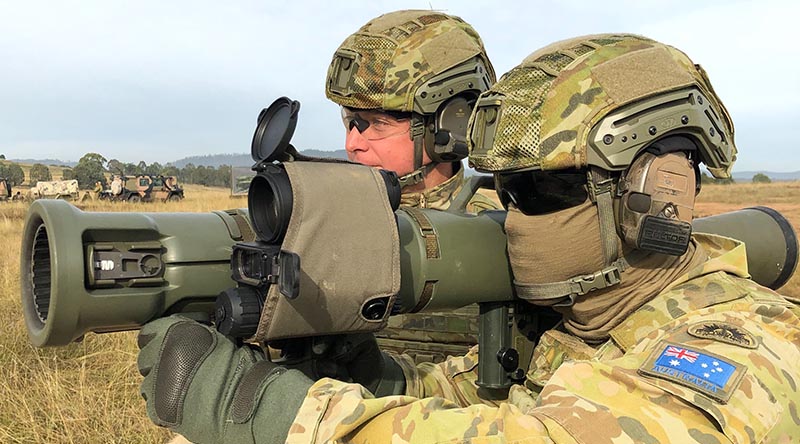One of the biggest changes Warrant Officer Class One (WO1) Andrew Beaman has seen during his service is the complexity and amount of equipment soldiers carry.
“From a technical view, soldiers haven’t changed. For want of a better term, digs are going to dig. They’ve been digging for a long time and they’re going to keep doing that,” WO1 Beaman said.
“But when I joined in ’91, the most expensive piece of kit I carried was my SLR [self-loading rifle], and nowadays the rifle is probably the cheapest thing soldiers carry.”
With laser range finders, GPS and communication technology making soldiers’ equipment more advanced than ever, it was clear technical guidance was needed at senior warrant officer levels.
WO1 Beaman has become the first Artificer Sergeant Major Land, a newly created position to serve as the senior enlisted technical adviser in Defence’s Land domain, and the first Tier-C technical WO1 position in Army.
The role primarily mentors senior warrant officers, including RAEME (Royal Australian Electrical and Mechanical Engineers), signals and construction engineer technical trades.
WO1 Beaman said his advancement acknowledged the skills and experience technical trades can provide senior leadership, not available from regimental warrant officers.
“With this position I want to embed the fact that technical trades are critical to the capability Army provides, and the advice we bring is valuable to senior leadership,” WO1 Beaman said.
‘There’s no set posting line you have to follow, but diverse knowledge helps you in more senior positions.’
He said the position gave soldiers an end-of-career goal while staying in a technical stream, and his advice for Tier-C hopefuls was to diversify their postings.
“Take an instructional posting to impart your knowledge and to hone your admin. Take a posting to CASG [Capability Acquisition and Sustainment Group] to see how equipment is procured and managed at a fleet level. If an opportunity for a posting to recruiting comes up, take that,” WO1 Beaman said.
“There’s no set posting line you have to follow, but diverse knowledge helps you in more senior positions. You don’t want to be learning it when you are already there.”
WO1 Beaman enlisted after finishing high school in Albury, and thought an apprenticeship sounded better than being a labourer.
“I had a well thought-out life plan: join the Army and become a plumber. Get out of the Army and do plumbing. Become rich, because plumbers were rich,” WO1 Beaman said.
His eventual trade as a motor mechanic wasn’t his first choice. He had no interest or experience in it before his apprenticeship, but found he had a knack for it after starting.
A highlight of his career was the Anzac Day ceremony during his deployment to Bougainville in 1999.
“We left tour team site before dawn and travelled out to an old World War 2 Matilda tank that had been knocked out during a battle,” he said.
“We did our dawn service at the Matilda tank. It was simple but very moving. That same year I did Remembrance Day in East Timor, so ’99 for me was a reflection on the job we do as soldiers.”
Outside of work, WO1 Beaman spends his time building and racing jet sprint boats.
What started out as helping a mate back a boat trailer into the water turned into a 15-year hobby that has taken him around the world.
“I love the adrenaline of racing a boat at over 100 kilometres an hour on a race track that would fit inside a rugby field,” WO1 Beaman said.
“Nought to 100 in less than two seconds, racing on a track not much wider than the boat, going around U-turn corners, the G-forces are unlike any other motorsport, except maybe Formula 1.”
He races in the LS-Class and aims to compete in the world titles in New Zealand this year.










